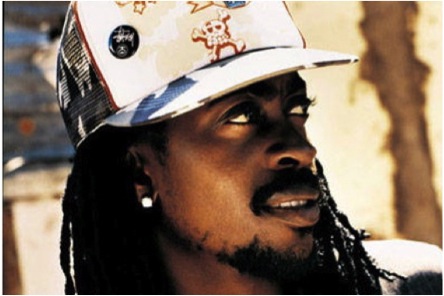Anthony Moses Davis a.k.a Beenie Man has been at the forefront of reggae and dancehall music, both in Jamaica and globally, for two decades. His 2000 album, Art & Life, won the Grammy for Best Reggae Album, and the self-proclaimed “King of the Dancehall” has collaborated with artists from Janet Jackson to Wyclef Jean (who also worked on Art and Life with famed Cuban trumpeter Arturo Sandoval). We talked to Beenie Man about the dancehall movement, his musical inspirations and the situation of fellow reggae star Buju Banton.
What are you working on right now?
What I’ve been working on lately is my album, King and Country. This album is more local production than international production – it’s more my production.
What does dancehall music mean to Jamaica?
It’s the second culture of Jamaicans. Dancehall music comes from reggae music, which is the original foundation music of Jamaica. So dancehall is very important, it’s very important in the minds of the youngsters because it is the music that has a significance; and it’s a type of music they can dance to. It captivates both mind and spirit.
How has dancehall changed?
It’s changed because of the artists. Dancehall has changed by the decade, over the last two decades, but it has come back to its original foundation sound. It’s a fusion between pop music and original dance hall. Right now it’s at the stage where artists are becoming intelligent artists, where it’s all about the culture and the roughness of the music. It’s changed a lot.
You were recently nominated for artist of the decade. What do you think your impact has been on Jamaican music?
I have been a star for 20 years now, so I’ve been doing this for two decades. When a new artist is nominated and wins, like Shaggy, that’s a great achievement for the country. I think dancehall has become more international – it’s gotten bigger and larger, and much more people are listening to the music.
Who were your musical heroes growing up?
Bob Marley and Jimmy Cliff. Jimmy Cliff and I took the road of trying to do [music] deeper, with more respect. Jimmy Cliff was more of a teacher and father to me than an artist, and a mentor. Bob Marley had more of the radical side to him.
What role does religion play in your life and your music?
In Jamaica, religion still has a part of everybody’s life. I’ve always been in a religious family, in religious surroundings, so it plays a part in Jamaican life.
What do you think about Buju Banton’s situation?
I cannot think about what happened. It’s not about what you did, it’s about what you’re supposed to do. Buju Banton is a big deal to dancehall music. It’s not something to rejoice about – it’s a sad mood. But in the end, that was his destiny.
What would you say to young Jamaicans looking to go into music?
Music is not something to go into. It’s a club – you can join it. You can’t have a membership, but the music is dedicated to the club, it belongs to the club. So if you want to do music, you have to respect the music for what it is, and not for what you can make from it. So if you’re burning about thinking about money – music is something we need to nourish, to take time with it.
